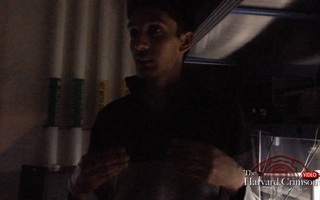Nina Jain ’11 spent last summer trekking door-to-door through a Delhi slum, trying to find out which of the impoverished residents suffered from tuberculosis. There was one problem, though. She didn’t speak Hindi.
“I memorized the questions in Hindi, and asked them to say yes or no,” she said. “I had a translator, but she didn’t speak English.”
Jain was working with Asha for Education, a non-governmental organization that works toward the education of underprivileged children. [SEE CORRECTION APPENDED]
“It focuses a lot on empowering the people in the slums so they can take control of their own lives and improve their socioeconomic status,” Jain said.
Asha has only been present for the past four years in the slum where Jain worked, and so many diseases and health problems are still rooted in the population, Jain said.
“I went from house to house and went through a list of symptoms for TB,” she said. “If they were suffering from a lot of the symptoms, we would give them a test and find out two days later if they were positive.”
The infected patients could then be treated at the clinic or by a doctor who visited the slums weekly, added Jain.
Jain also worked with children living in the slums to teach them English. Although many of the students took English classes in free, government-run schools, Jain said that many could not even say, “Hello, my name is…”
“The saddest thing about being so poor is not that you don’t have enough clothes to wear or that you don’t have as many things as somebody else,” Jain said. “It’s that you don’t have any opportunities, you have no chances to get yourself out of this position, and you don’t even know what’s available to you.”
Despite the debilitating conditions, Asha has managed to get 200 students into universities this past year, Jain said. To help them with study skills and assimilating to college social life, she held workshops for the students.
“They’re so brave—they’ve never left the slum and now they’re going to college and they weren’t afraid,” said Jain. “It was unbelievable.”
Jain was supported by the Harvard South Asian Men’s Collective (SAMC), which has previously raised money for Asha and awards a SAMC-Asha Fellowship, according to SAMC Chair Roy V. Mathew ’10.
“We’re really excited to have people have a sustainable impact and maintain a long-term relationship with Asha,” Mathew said.
—Staff writer Alissa M. D’Gama can be reached at adgama@fas.harvard.edu.
For recent research, faculty profiles, and a look at the issues facing Harvard scientists, check out The Crimson's science page.
CORRECTION
The Sept. 11 news article "Testing for Tuberculosis in The Slums of New Dehli" gave the wrong name for the organization for which Nina Jain ’11 worked in New Dehli. Jain worked with Asha, an organization that focuses on community health and development, not Asha for Education.
Read more in News
Celebration Promotes Locally-Grown ProduceRecommended Articles
-
 Lab Rat of the Week: Vijay Jain '11
Lab Rat of the Week: Vijay Jain '11 -
Franklin To Serve As Physics ChairPhysics Professor Melissa Franklin will replace fellow Professor Christopher W. Stubbs as the chair of the Harvard Physics Department next year, marking the first time in history that the position will be held by a woman.
-
 Facemash.com, Zuckerberg's Former Website, Sold for $30K
Facemash.com, Zuckerberg's Former Website, Sold for $30K -
Two Juniors Earn Truman ScholarshipTwo Harvard undergraduates were awarded the prestigious Harry S. Truman Scholarship.
-
 Harvard Senior Wins Glamour Award
Harvard Senior Wins Glamour Award -
Future Society Meets To Discuss Human ExistenceMembers of the Future Society discussed advanced technology, artificial intelligence, and the future of their group in the club’s first meeting of the school year on Friday.













